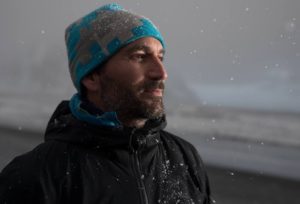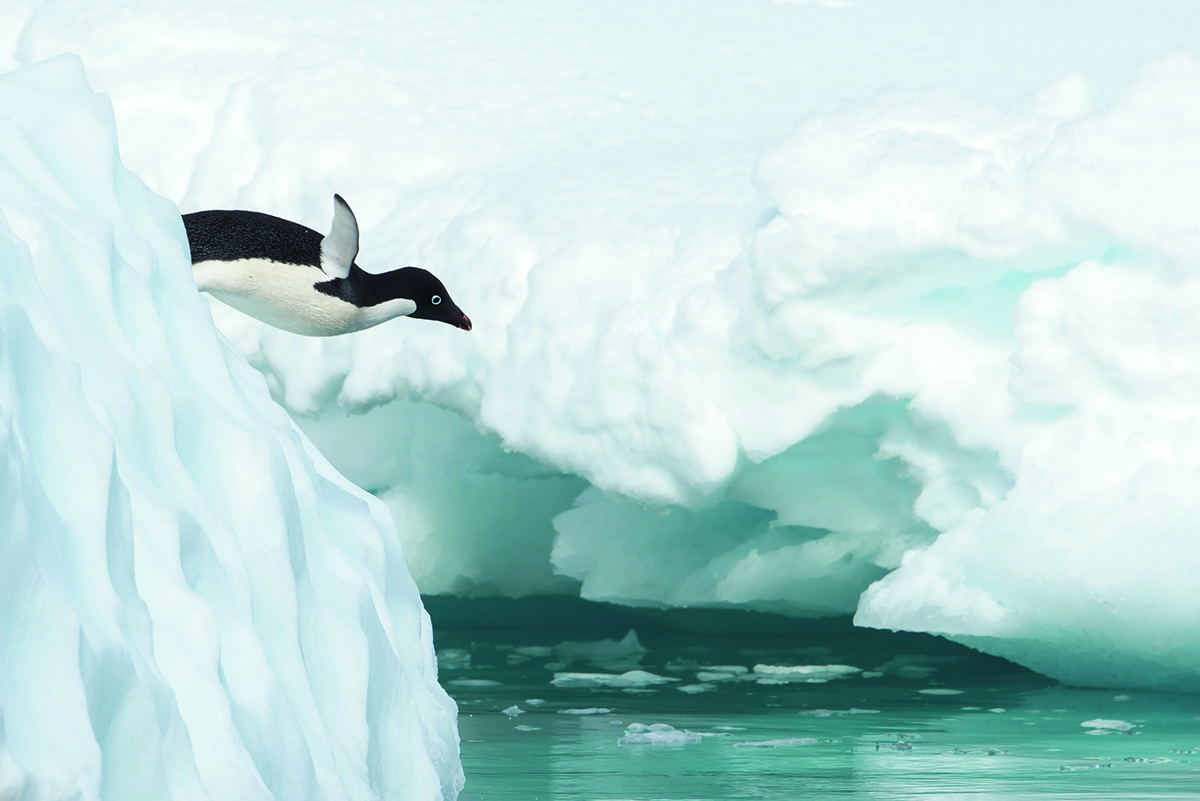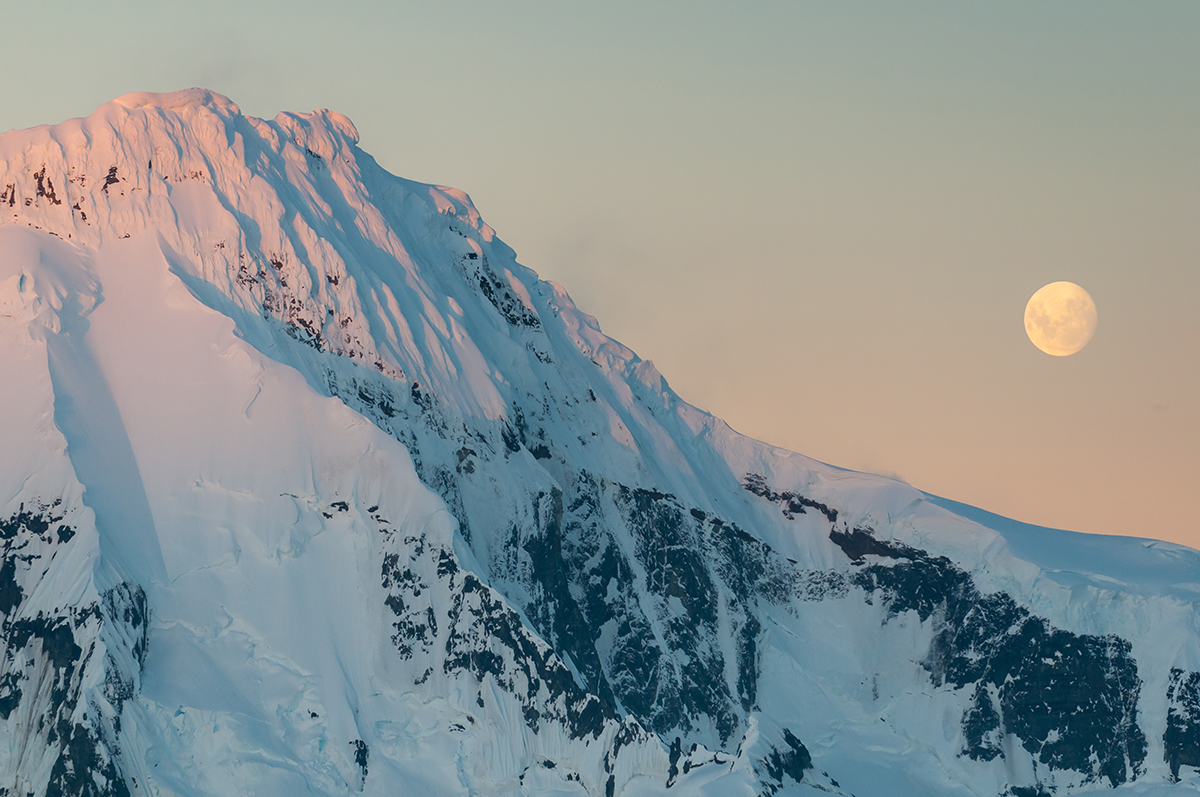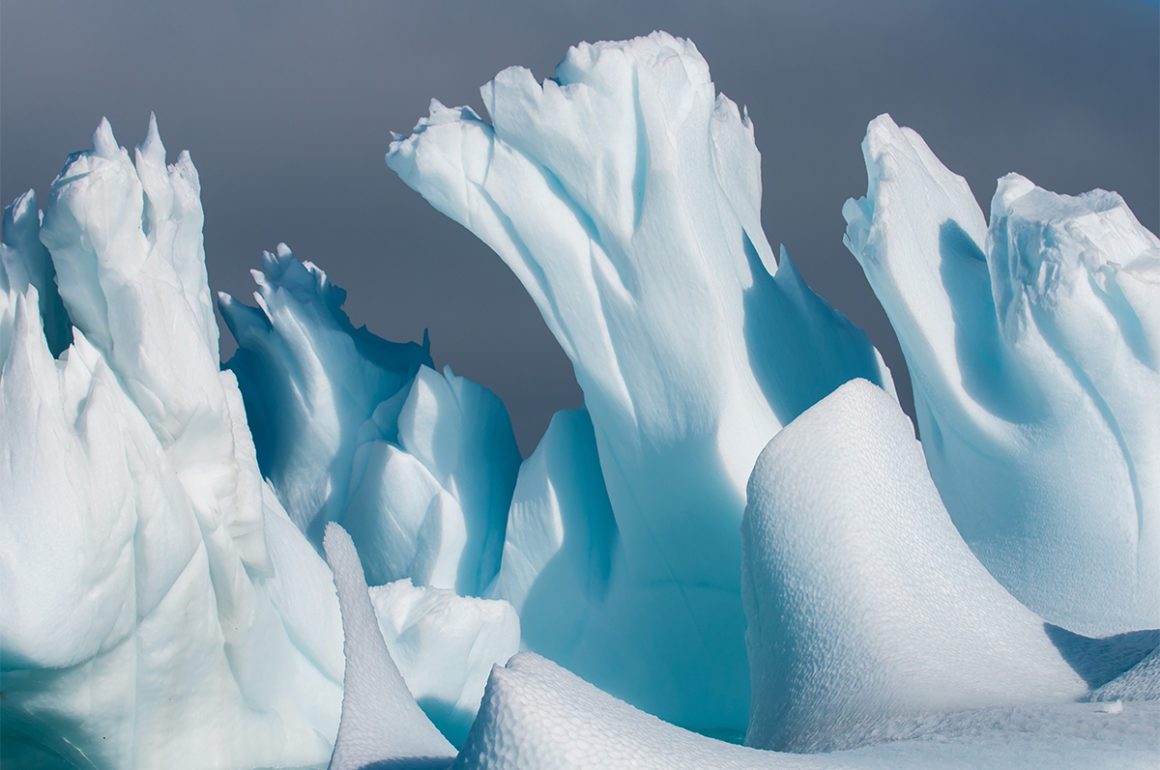
Ice Garden by David Sinclair
Over the course of his career, David Sinclair has photographed some of our planet’s wildest landscapes and led numerous polar expeditions, working closely with local communities to protect the natural environment and raise awareness of the impacts of climate change. Here, he discusses his love of the polar regions and why a cultural shift is needed to tackle environmental issues
 1. What inspired you to become a photographer, particularly in the polar regions?
1. What inspired you to become a photographer, particularly in the polar regions?
I cannot recall what first piqued my interest in the polar regions, but it wasn’t photography. My first recollection of feeling an intense desire to visit [that area] dates back to a conversation at a party in sub-tropical Brisbane when I decided I wanted to ski across Greenland. By then, through my travels and adventures, I’d fallen in love with mountains, ice and remote wilderness. Greenland was this large mysterious landmass that called to me.
Follow LUX on Instagram: luxthemagazine
It was a natural progression as a keen photographer to want to return to capture the majesty of the polar regions and I’ve been returning every year as a photographer, guide and expedition leader. The solitude, the grandeur, the incredible wildlife and the feeling of being extraordinarily and wonderfully insignificant keep drawing me back. There are not many days when my mind does not wander to the icy expanses.
2. Should the issues of human waste and climate change be tackled separately or together?
This is a difficult question to unpack. Human waste and climate change are linked and the impact of both on biodiversity is well documented. Certainly climate change appears to be a more polarising subject and waste an easier subject to tackle. Regardless, we are running out of time to tackle the impacts of both so we need to figure out what works to influence decision makers and business leaders and make the necessary changes to decarbonise and create a truly circular economy.
In my lifetime, the human population has more than doubled and the wildlife population has more than halved. The sixth great extinction is underway and human activity is at its heart. We need to tackle climate change and biodiversity loss head on and to do that effectively I think we need cultural change. So many lawmakers and captains of industry are too far removed from ‘cause and effect’ and are incentivised or motivated to act in ways that imperil biodiversity and the environment. We need cultural change, to embed a deep respect and love for nature, a respect that overrides the desire to exploit it. It’s going to take a monumental effort to change course. I am seeing encouraging signs as more and more people are awake to the perils of losing biodiversity and harming the ecosystems we are reliant on for our own longevity and prosperity.

Diving In by David Sinclair
3. What values do you think remain consistent across your three careers as a photographer, polar expedition leader and lawyer?
I value honesty and integrity. I think I’m honest to a fault, calling things how I see them. While this can be challenging for some, I think people respect you when you level with them. As an expedition leader I think it’s important to be honest with people who have placed their trust in your decision-making. As a photographer, I think it’s important to depict nature in an honest way, not to embellish that which does not need embellishment, and as a lawyer, it is critical to act with honesty and integrity at all times.
Read more: Superblue’s experiential art centres & innovative business model
4. What role do you think photography has to play in trying to promote protection of the Arctic regions?
Photography has a very important role in promoting the protection of the Arctic, Antarctic and all ecosystems and species in need of protection. Strong imagery can be a very powerful advocacy tool. An image can captivate people in a way that an essay or scientific paper or report cannot.

Antarctic Peninsula Moonrise by David Sinclair
5. How has increasing geo-politicisation in the Arctic impacted attempts to preserve the ecology of the area?
The Arctic is a geopolitical hotspot right now. There is increased competition for influence over sea routes and for resources, ironically as climate change makes sea routes and resources more accessible. Heightened exploitation of the Arctic could have devastating consequences for its ecology, compounding the already devastating impacts of human activity outside of the Arctic. I cannot predict how geo-political tremors will impact attempts to preserve the Arctic. It is possible heightened tensions and competition for resources might draw more attention to the Arctic which could help attempts to sway public opinion which could lead to stronger protection.
6. Can you share your favourite expedition memory?
I have so many amazing memories, it’s impossible to choose a favourite. I recall one brilliant day in Davis Strait surrounded by ice. We came across a polar bear eating another polar bear, Northern Bottlenose whales and a pod of orca, and we landed on sea ice. Later, in the evening, we watched the Aurora Borealis dance across the stern of the ship with bioluminescence in our wake.
I wrote in my diary on a ski-crossing of Greenland, “We could not be further from civilisation but life could not be more civilised”. I think this encapsulates the wonderful camaraderie and simplicity of expedition life.
Find out more: davidsinclairimages.com







Recent Comments